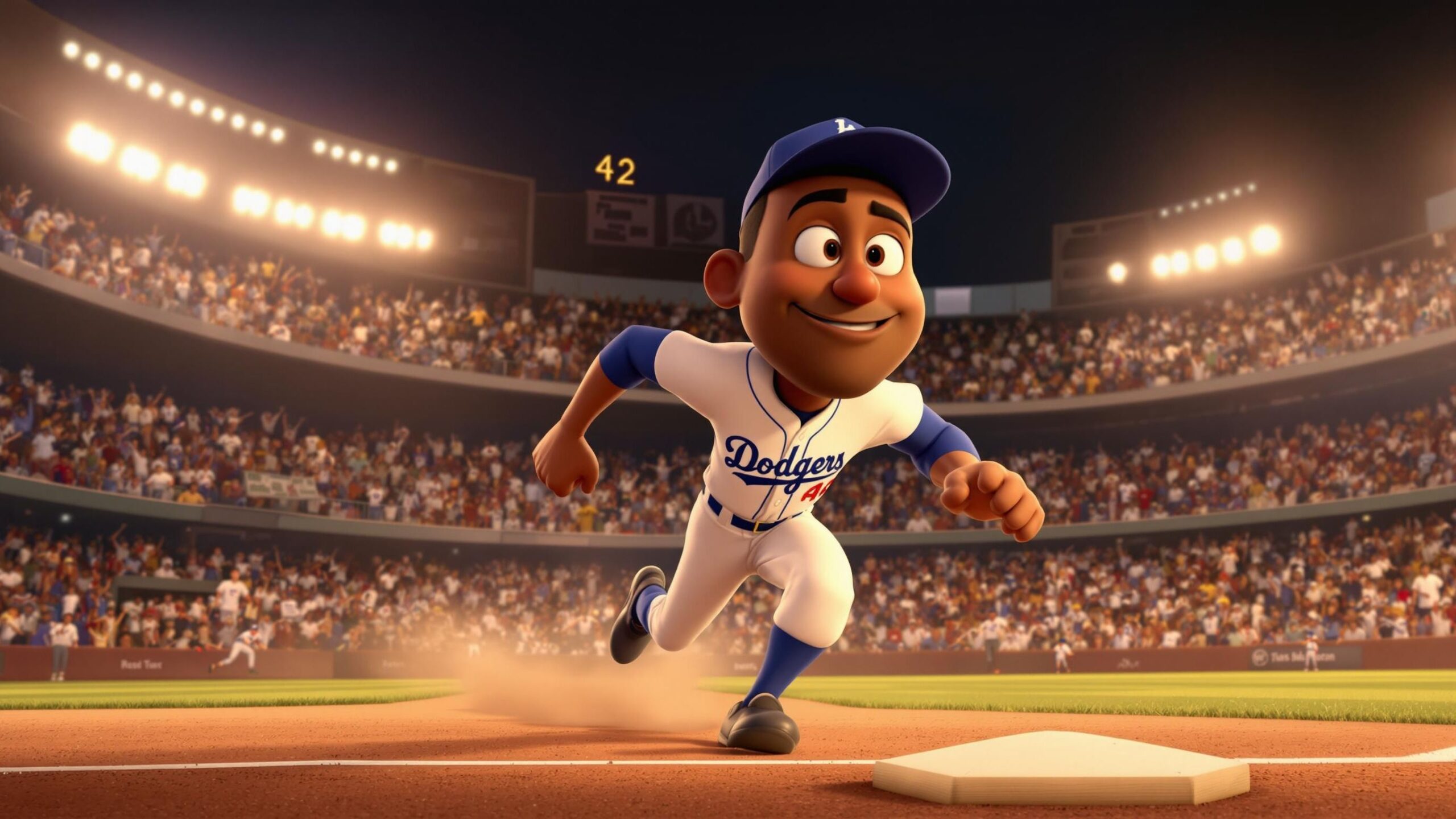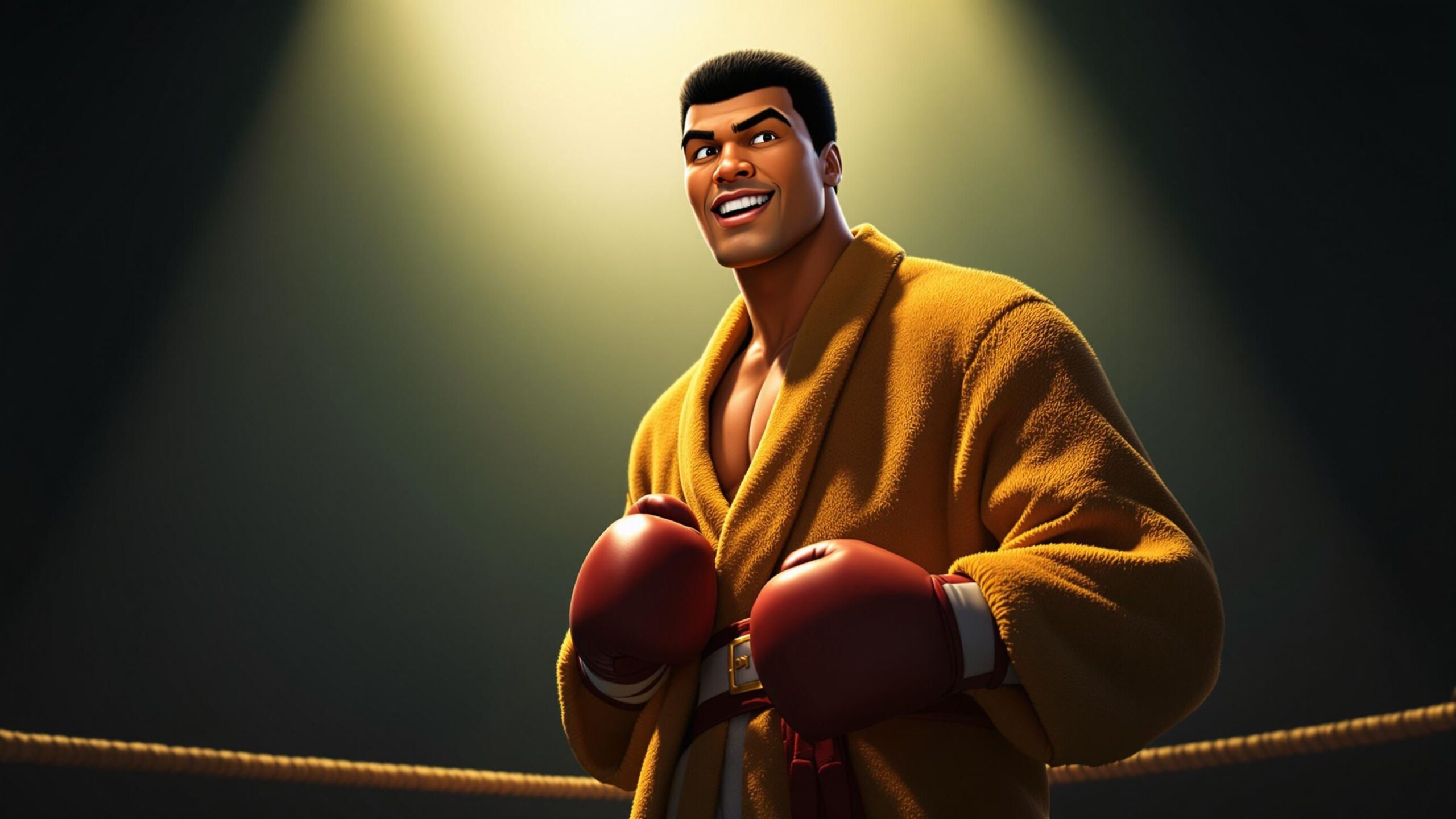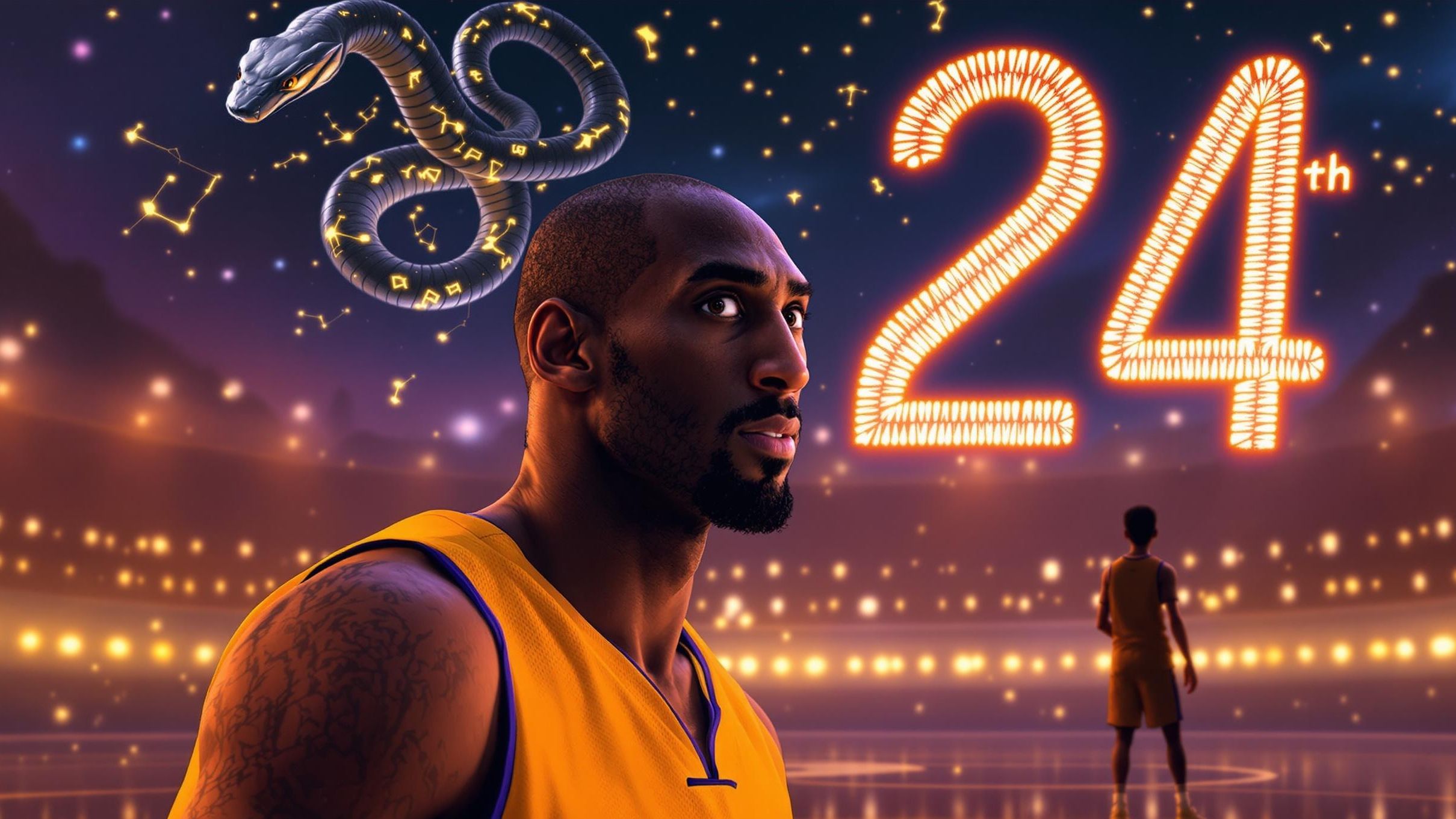Baseball has often been called America’s pastime, a sport of peanuts, Cracker Jack, and timeless summer days. But for much of the early 20th century, that “American pastime” was anything but inclusive. For decades, Major League Baseball remained a segregated institution, with Black athletes barred from participating due to the color of their skin. The game was incomplete. The nation, fractured. And then, in 1947, a young man named Jackie Robinson stepped up to the plate—and everything changed. Jackie Robinson didn’t just play baseball. He challenged the very foundations of racism in professional sports. His presence on the field represented a seismic cultural shift that reverberated far beyond the diamond. With every base he stole, every jeer he ignored, and every headline he earned, Robinson forced a nation to confront its prejudices and ask itself what kind of America it wanted to be. This is the story of a man who refused to let the world define him by his skin color. A man whose courage, dignity, and extraordinary athletic talent reshaped not only baseball, but the moral compass of a generation. Jackie Robinson wasn’t just a barrier-breaker—he was a game-changer, a trailblazer, and one of the most important heroes in American history. This article takes a deep dive into his remarkable life, his impact on civil rights, and how one man’s journey transformed a sport—and a country—forever.
The Man Behind the Legend
Before he became an icon, Jackie Robinson was just a kid from Pasadena, California, born on January 31, 1919. Raised by a single mother, Mallie Robinson, Jackie’s upbringing was rooted in resilience. His family faced poverty and racial discrimination in a predominantly white neighborhood, but Robinson never let that define him. From a young age, he excelled in sports—football, basketball, track, and of course, baseball. It wasn’t long before the world saw his potential.
Robinson’s athleticism took him to UCLA, where he became the first student to letter in four sports. Yet even in college, he had to fight racism on and off the field. After a brief stint in the military, during which he refused to move to the back of a segregated bus (foreshadowing Rosa Parks’ stand), Robinson left with an honorable discharge. His path to baseball greatness had already begun, fueled by a righteous sense of justice.
Enter Branch Rickey: A Historic Gamble
In 1945, Brooklyn Dodgers executive Branch Rickey was searching for the right man to break Major League Baseball’s color barrier. He wasn’t just looking for a good ballplayer—he needed someone with nerves of steel, a strong moral compass, and the willingness to endure hate without retaliation. Jackie Robinson fit the bill.
When Rickey offered him the opportunity to play for the Dodgers’ minor league affiliate, the Montreal Royals, Robinson agreed—but not without understanding the weight he would carry. This wasn’t just about baseball. It was about making history. Rickey famously told Robinson that he needed someone “with guts enough not to fight back.” And Robinson delivered. His debut with the Royals in 1946 was a smashing success, proving he was more than ready for the big leagues.
April 15, 1947: The Day Everything Changed
The world shifted on April 15, 1947. Jackie Robinson stepped onto Ebbets Field in Brooklyn as the first African American to play Major League Baseball in the modern era. The crowd was electric. Some were thrilled, many were hostile. But Jackie focused on the game. That day marked more than just a historic debut—it was a seismic cultural shift.
Robinson endured jeers, threats, and even physical harm. Opposing players spiked him, pitchers aimed for his head, and fans hurled slurs like grenades. But Jackie stood tall. He let his performance speak louder than their hate. That rookie season, Robinson hit .297, stole 29 bases, and was named Rookie of the Year. More importantly, he proved to the world that Black athletes belonged in the majors just as much as anyone else.
Baseball Excellence: A Career of Firsts
Robinson didn’t stop with just breaking the color barrier—he became one of the best players in the league. Over his 10-year career with the Brooklyn Dodgers, Robinson was a six-time All-Star, won the National League MVP in 1949, and helped lead his team to six National League pennants and a World Series title in 1955. His style was electric. He bunted, he hit for power, he stole home (a staggering 19 times), and he played with a fire that couldn’t be quenched.
He was the kind of player who changed the tempo of the game. Pitchers dreaded his presence on base. He brought an aggressive, unrelenting edge that forced everyone to play differently. More than stats, Robinson was a symbol of progress in motion. Every time he ran, slid, or cracked the bat, he struck another blow against segregation.
The Mental Battle: Grace Under Pressure
What Jackie Robinson endured psychologically is perhaps even more remarkable than his on-field performance. He lived under constant scrutiny and threat. He received death threats, had to stay in separate hotels from his teammates, and often dined alone. But he never let bitterness take root.
He journaled, prayed, leaned on his wife Rachel for support, and carried the burden with dignity. His restraint was a form of activism. Every time he chose silence over retaliation, it sent a message louder than any fistfight ever could. It forced America to look at itself in the mirror—and not everyone liked what they saw.
Robinson once said, “I’m not concerned with your liking or disliking me. All I ask is that you respect me as a human being.” That quote echoed beyond ballparks and into classrooms, courtrooms, and communities across the nation.
The Impact Beyond the Diamond
Jackie Robinson wasn’t just a trailblazer on the field—he was an outspoken advocate for civil rights long before it became popular or even safe. After retiring from baseball in 1957, he used his fame to push for social justice. He marched with Martin Luther King Jr., raised money for the NAACP, and spoke candidly about the struggles of Black Americans. He also broke barriers in the corporate world by becoming the first Black vice president of a major American corporation when he joined Chock full o’Nuts.
Robinson’s influence extended to politics and media as well. He wrote newspaper columns discussing racial inequality, supported political candidates who backed civil rights, and used his platform to demand change. Unlike many athletes of his time, Robinson was never content with silence. He believed visibility came with responsibility—and he carried that torch with pride.
A Legacy Cemented in History
Jackie Robinson passed away on October 24, 1972, at just 53 years old. But his legacy was already immortal. In 1997, Major League Baseball retired his number 42 across all teams—the first and only time this has been done for a player. No one else would wear 42 again, except on April 15 each year when players across the league don the number to celebrate Jackie Robinson Day.
He has statues, streets, schools, and scholarships named in his honor. But perhaps the greatest testament to his impact is the generations of players who followed in his footsteps—Hank Aaron, Willie Mays, Ken Griffey Jr., Mookie Betts—who all owe a part of their careers to the path he paved.
His story is taught in schools, his quotes are etched into history books, and his face graces murals in stadiums across America. Jackie Robinson didn’t just change baseball—he helped change the country.
The Unseen Moments of Heroism
For every home run and stolen base, there were moments behind the scenes that revealed Robinson’s quiet courage. He visited children’s hospitals. He wrote to young fans. He comforted teammates struggling with the weight of discrimination. He even helped integrate other sports by mentoring Black athletes looking to break into professional leagues.
He was more than a symbol—he was a man of action. And unlike many icons whose stories become sanitized with time, Robinson’s legacy remains raw, powerful, and grounded in truth. He was far from perfect, and he didn’t pretend to be. That authenticity is part of what made him so magnetic.
Even as his health declined, he continued to push for inclusion and progress. In his final public appearance at the 1972 World Series, he challenged baseball to hire more Black managers. He wasn’t content with symbolic victories—he demanded structural change.
Rachel Robinson: The Unsung Hero Beside Him
No story about Jackie Robinson is complete without acknowledging Rachel Robinson, his wife and lifelong partner. Rachel was his anchor through the storms—his confidante, moral compass, and biggest supporter. She endured the same hate and separation, all while raising their children and managing their home.
After Jackie’s death, Rachel founded the Jackie Robinson Foundation, which has provided scholarships and leadership training to thousands of minority students. Her grace and tenacity ensured that Jackie’s legacy would not be forgotten or misunderstood.
Rachel once said, “We had a mission, and we were determined to make it work.” And they did—together.
Jackie Robinson in Pop Culture and Education
Jackie Robinson’s story isn’t just confined to dusty textbooks or plaques in Cooperstown. His life has been dramatized in films like The Jackie Robinson Story (in which he played himself) and more recently in 42, starring Chadwick Boseman. His name appears in history classes, Black History Month lessons, and sports documentaries.
Kids grow up knowing who he is. They wear jerseys with 42 on the back, not just because he was a great ballplayer, but because he made it possible for others to dream. Every time someone stands up against injustice in sports, Robinson’s spirit is present. He showed the world what courage looks like in cleats.
The Moral of the Story
Jackie Robinson’s life reminds us that change is rarely comfortable. It’s born out of defiance, discipline, and a deep belief in human dignity. He didn’t ask for approval. He didn’t wait for a better time. He stepped onto the field when the world said, “You’re not welcome,” and he proved them wrong—every game, every season, every moment.
He wasn’t just a baseball player. He was a pioneer, a symbol, a force of nature. And while the scoreboard may have measured runs and hits, the true score was kept in hearts and minds across America. Thanks to Jackie, the game—and the nation—was never the same again.
More Than a Number
Jackie Robinson was many things—a son, a soldier, a scholar, an athlete, a father, a husband, a legend. But above all, he was a change-maker. His legacy isn’t just etched into the history of baseball; it’s stitched into the fabric of America. Every young athlete who dares to dream, every voice that speaks up for equality, every moment someone breaks a barrier—they all echo the courage of Jackie Robinson.
Wearing number 42 wasn’t just about playing a game. It was about proving that greatness knows no color, and that dignity, perseverance, and justice are worth swinging for. Jackie Robinson changed baseball, and in doing so, he helped change the world.



